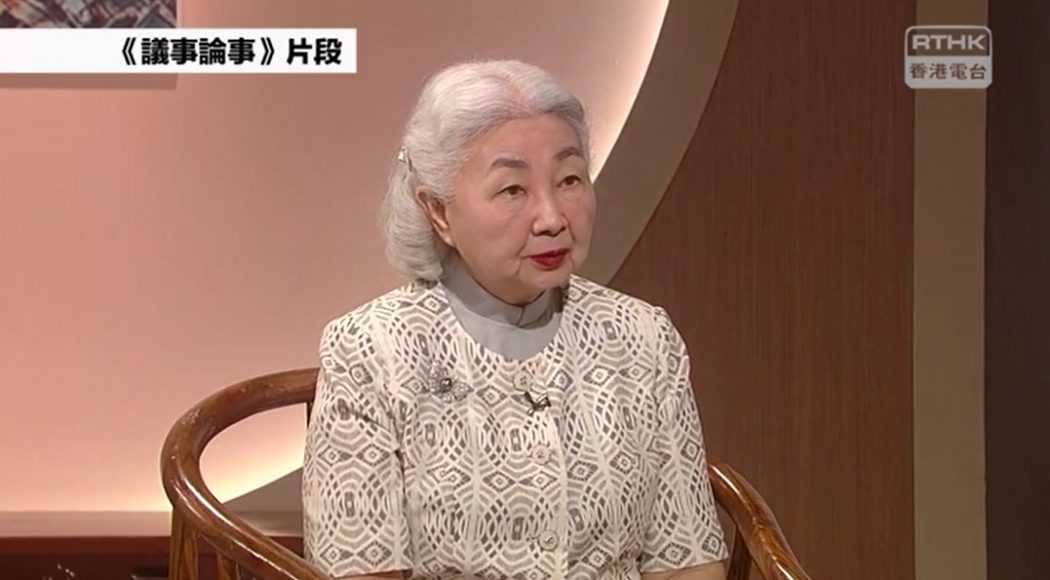Hong Kong pro-Beijing figures have said the impending national security legislation could be passed in Beijing over the weekend as China’s top legislature meets for the second time in a month.
A three-day meeting of the Standing Committee of the National People’s Congress (NPCSC) will begin on Sunday, though the proposed law that criminalises secession, subversion, terrorism and foreign interference in Hong Kong is not currently on the official agenda.

Nevertheless, Basic Law Committee Vice-chairwoman Maria Tam said on RTHK on Friday that legislators are “very likely” to vote and even pass the law at the meeting. Around 10 Hong Kong delegates and members of the Basic Law Committee have been invited to join as non-voting attendees, she said.
“It should be very soon, we have given our personal opinions… everyone hopes this trip will be worth it,” she said, days ahead of Hong Kong’s annual pro-democracy march on July 1.
Tam said the NPCSC Legislative Affairs Commission finished the local consultation work after meeting professionals from different sectors in recent days. She said the central authorities may not only consider the supporters’ views, and the Commission would “try its best” to reflect the opinions of Hongkongers.

“But this does not mean opposing views may appear, because of the limitations of the provisions,” Tam said.”If you are opposing [the law] in principle, and think it is not needed, then there is nothing left to be discussed.”
Closed-door “consultative” meetings were held at Beijing’s offices with community figures, though a poll by the Hong Kong Public Opinion Research Institute this month suggested that 57 per cent of Hongkongers surveyed opposed the law. Around 49 per cent said they were “strongly opposed.”
Secrecy
On Thursday, ex-secretary for justice Elsie Leung said on RTHK that she believed the national security legislation will be approved at the end of this month. She also defended Beijing’s decision not to disclose the details of the legislation.
“Because if it is published in Hong Kong, it may trigger public events and strong opposition, don’t want to spark off destructive behaviour,” Leung said, adding this was only her speculative opinion.
Leung also questioned the purpose of demonstrators who often chant pro-democracy and pro-independence slogans, suggesting such chants were secessionist and acts of subversion.

“Don’t you think their behaviour is like terrorism? If this is not controlled, [Hong Kong] will become like Taiwan in the future,” she said.
Last month, Beijing revealed and approved plans to promulgate laws to punish acts that it deems as a threat to national security. The unprecedented move to bypass the local legislature has alarmed democrats, civil society groups and trade partners, as such laws have been used broadly to silence and punish dissidents in China.
The government has repeatedly appealed to the public to “fully understand” and “staunchly support” Beijing’s resolution. But top government officials – including the Chief Executive Carrie Lam – have declined to comment on the details of the law, as the clauses are yet to be revealed.
State-run Xinhua News Agency published an “explanatory document” of the draft legislation last Saturday, which shed light on some general principles and the proposed law enforcement mechanism. But the document was not a finalised version of the provisions in the national security law, amid rumours that the legislation may include an extradition mechanism and the prospect of indefinite detention.
